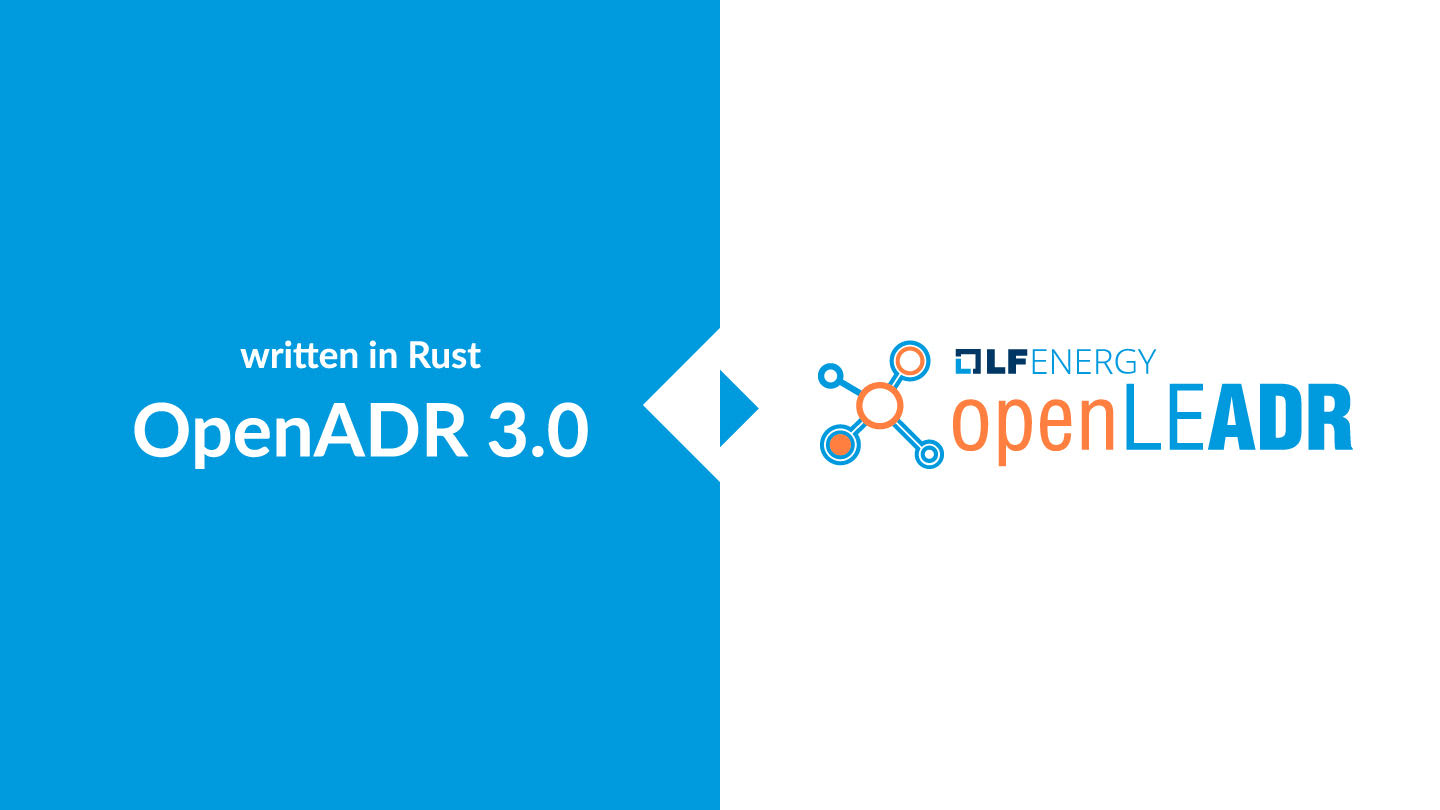Rust implementation of OpenADR 3.0 becomes part of OpenLEADR

This blog was originally posted on the LF Energy blog.
We’re happy to announce today that a new Rust implementation of OpenADR 3.0 is now part of the LF Energy OpenLEADR project.
OpenADR 3.0 is the latest version of the OpenADR standard that was created in 2009. According to the OpenADR Alliance, it is “designed to complement older versions of the standard”, such as OpenADR 2.0b, which is widely used within the industry.
A new implementation
The new open source Rust implementation of OpenADR 3.0, called openleadr-rs, has now become part of the OpenLEADR project. It is an initiative by Dutch Rust consultancy and open source software development company Tweede golf. The work is partly funded by ElaadNL, the Knowledge & Innovation center for the joint Dutch grid operators that researches and tests smart and sustainable charging of electric vehicles. ElaadNL also initiated the LF Energy OpenLEADR project back in 2020.
Hugo van de Pol, one of Tweede golf’s directors, says that they are very grateful for the collaboration with ElaadNL and the work now being incorporated into OpenLEADR. He explains that this aligns perfectly with Tweede golf’s mission to contribute to a more resilient digital energy infrastructure:
“We started this work because we wanted to apply what we learned building modern internet protocol implementations - such as for the Network Time Protocol for time synchronization - to protocols used in other vital digital infrastructure, such as the energy grid. In the end it’s not about productizing this work in any way, but about contributing to the resilience of our digital infrastructure. We want a robust Rust implementation to be out there for anyone to use and to build products on.”
He adds that they choose Rust because “it’s currently our preferred technology for building reliable software that’s super fast, memory-safe, and can be integrated in many different environments”.
Technical Steering Committee
With openleadr-rs now being part of OpenLEADR, a new TSC (technical steering committee) has been formed. Arila Barnes, founder of Energy IoT Open Source, who stepped in as lead maintainer of the OpenADR 2.0b implementation, says she is excited about these new developments around OpenLEADR and the momentum that OpenADR seems to have in general.
"OpenADR 2.0b has been instrumental in integrating microgrids into demand response programs, enabling utilities like PG&E and SCE in the US, as well as Vattenfall and E.ON in Europe, to manage distributed energy resources efficiently. OpenADR allows for seamless coordination between the grid and microgrids, enhancing grid resilience during peak demand. The LF Energy Hyphae project, an open source initiative, supports these efforts by providing a framework for microgrids to participate in real-time energy management leveraging LFE OpenLEADR. Energy IoT Open Source internship programs will continue to support the 2.0b implementation as part of LFE Hyphae use cases”.
The future
The first important milestone to be hit in December is a field-test-ready release of the Rust implementation of the 3.0.1 version of the spec. After that, an important priority for OpenLEADR’s TSC is working with early adopters to try it out and validate it. Ton Smets from ElaadNL expects serious interest from DSOs in The Netherlands:
“With the ongoing difficulties that DSOs face regarding grid congestion we see demand for an industry standard that can facilitate more dynamic grid models. We already performed numerous pilots with OpenADR 2.0b. Since the release of this new OpenADR 3.0 implementation we expect easier adoption and integration for DSOs as well as consumers like CPO parties for example. Our collaboration with LF Energy has proven successful with our older OpenADR 2.0b implementation and we are delighted to continue on this path together.”
Also Vattenfall sees OpenADR and in particular the 3.0 version as a great fit for DSO to CPO communications. Vincent Gliniewicz says:
“Vattenfall is currently procuring a system for orchestrating flex that will communicate with OpenADR. We conducted an analysis together with other organizations in the industry and came to the conclusion that OpenADR was a great communication protocol fit between DSO and CPO, especially for conditional agreements. Why we believe OpenADR 3.0 is especially valuable compared to OpenADR 2.x is that 3.0 supports CIM.”
Get involved
If you’re interested in contributing to this work, have a look at https://openleadr.org/.
If you want to engage, join one of the public TSC meetings, reach out via Slack, or meet Arjan Wargers from ElaadNL in London, at the second OpenADR++ Users Conference on Nov 19 - 20, 2024.
Looking to build on top of openleadr-rs?
Get help from the experts!
- Interoperability with your existing infrastructure
- New platforms and features
- Professional support